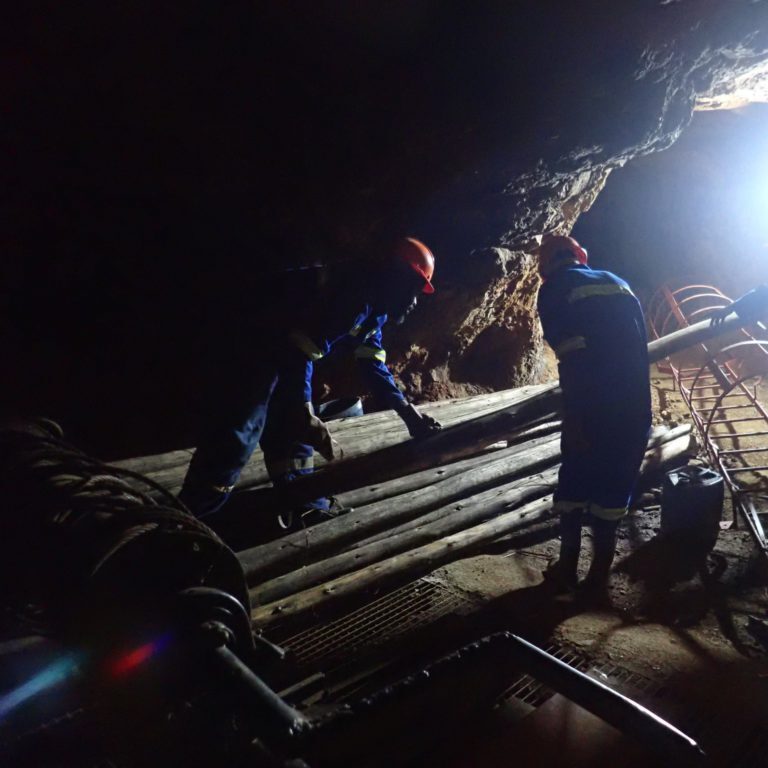Mongolia has entered into a landmark agreement with French nuclear giant Orano Mining Group to develop the Zuuvch-Ovoo uranium deposit in the Gobi Desert. Valued at $1.6 billion, this initiative is poised to become Mongolia’s most significant foreign investment since the development of the Oyu Tolgoi copper-gold mine. The project is expected to cement Mongolia’s role in the global uranium supply chain while deepening economic ties with Western nations.
Project Scope and Potential
Located over 100 kilometers south of the city of Sainshand, the Zuuvch-Ovoo uranium deposit holds an estimated reserve of 100,000 tons, placing it among the largest uranium finds in recent history. Over its projected 30-year lifespan, the mine will extract uranium critical to powering nuclear reactors worldwide. Construction is slated to begin soon, with the first phase expected to focus on building extraction and processing facilities capable of safely managing uranium output while maintaining environmental standards. Once operational, the mine is anticipated to significantly bolster Mongolia’s GDP through direct revenues and associated economic activities.
Strategic Importance for Mongolia and France
The agreement reflects Mongolia’s “third neighbor” policy, an effort to diversify its economic and diplomatic ties beyond its immediate neighbors, Russia and China. By partnering with Orano, Mongolia secures a foothold in the global uranium market, reducing reliance on regional powers for foreign investment. For France, the collaboration is part of a broader strategy to ensure long-term access to uranium, a critical resource for the country’s nuclear energy sector, which generates the majority of its electricity. This partnership also aligns with France’s commitment to achieving energy sovereignty and supporting global decarbonization goals.
Economic and Local Impacts
The project promises substantial economic benefits for Mongolia, including significant job creation and infrastructure improvements in the Gobi Desert region. Local communities are expected to benefit from new roads, energy facilities, and economic development initiatives associated with the project. Additionally, the government of Mongolia will receive royalties and taxes that will contribute to national development programs, potentially elevating living standards across the country.
Orano has pledged to implement environmentally sustainable mining practices, emphasizing water conservation and waste management to protect the sensitive ecosystem of the Gobi Desert. The company is working closely with local stakeholders to ensure that the project respects the region’s cultural and environmental heritage. Educational and training programs are also planned to equip local workers with skills needed for long-term employment in the mining and energy sectors.
Challenges and Next Steps
Despite its economic promise, the project faces challenges, including the logistical difficulties of developing a large-scale operation in a remote and arid region. The global uranium market’s fluctuating prices and geopolitical tensions may also influence the project’s profitability. Mongolia’s ability to navigate these hurdles while maintaining transparency and stakeholder trust will be key to its success.
The next steps involve finalizing construction plans and obtaining necessary permits to ensure operations comply with international safety and environmental standards. The development phase is expected to take 3-4 years, with production anticipated to begin soon afterward. The successful launch of the Zuuvch-Ovoo mine would mark Mongolia’s debut as a major player in the global uranium market, strengthening its economic foundation and contributing to the worldwide push for cleaner energy sources.
A Milestone for Global Energy Security
The Mongolia-Orano agreement underscores the growing importance of uranium in the global transition to sustainable energy. As nations increasingly adopt nuclear power to reduce carbon emissions, securing reliable uranium sources becomes essential. This partnership not only bolsters Mongolia’s economy but also highlights France’s leadership in fostering international collaboration for critical energy resources. The Zuuvch-Ovoo mine stands as a testament to the potential of mutually beneficial international ventures in addressing global energy challenges.





